Immaculate Upgrade
For at least this baseball fan, the Immaculate Grid is infinitely more engaging and enjoyable than the limited, five-lettered drag of a game known as Wordle.
Trigger warning: this column contains references to obscure baseball players and other forms of sports trivia.
I don’t remember how Wordle came into my life.
Not quite two years ago, somewhere in that blur of COVID-land, the five-letter word game went viral. I was among the millions who got the bug.
For a few months, I played most every day. It was an OK diversion and a big part of the fun was seeing how rapidly I could identify the word via the hangman-like process of seeing which letters made the grade and which were eliminated.
My high-water mark probably came 18 months ago, when I got “THORN” on the third try in about two minutes.
But the bloom has come off that rose for me. Over a year ago, my Wordle engagement became sporadic. Usually, I wouldn’t even think about it unless my wife reported how many rounds she needed to solve Wordle on a given day. In rare moments of weakness and boredom, I’d see if I could equal or even top her effort.1
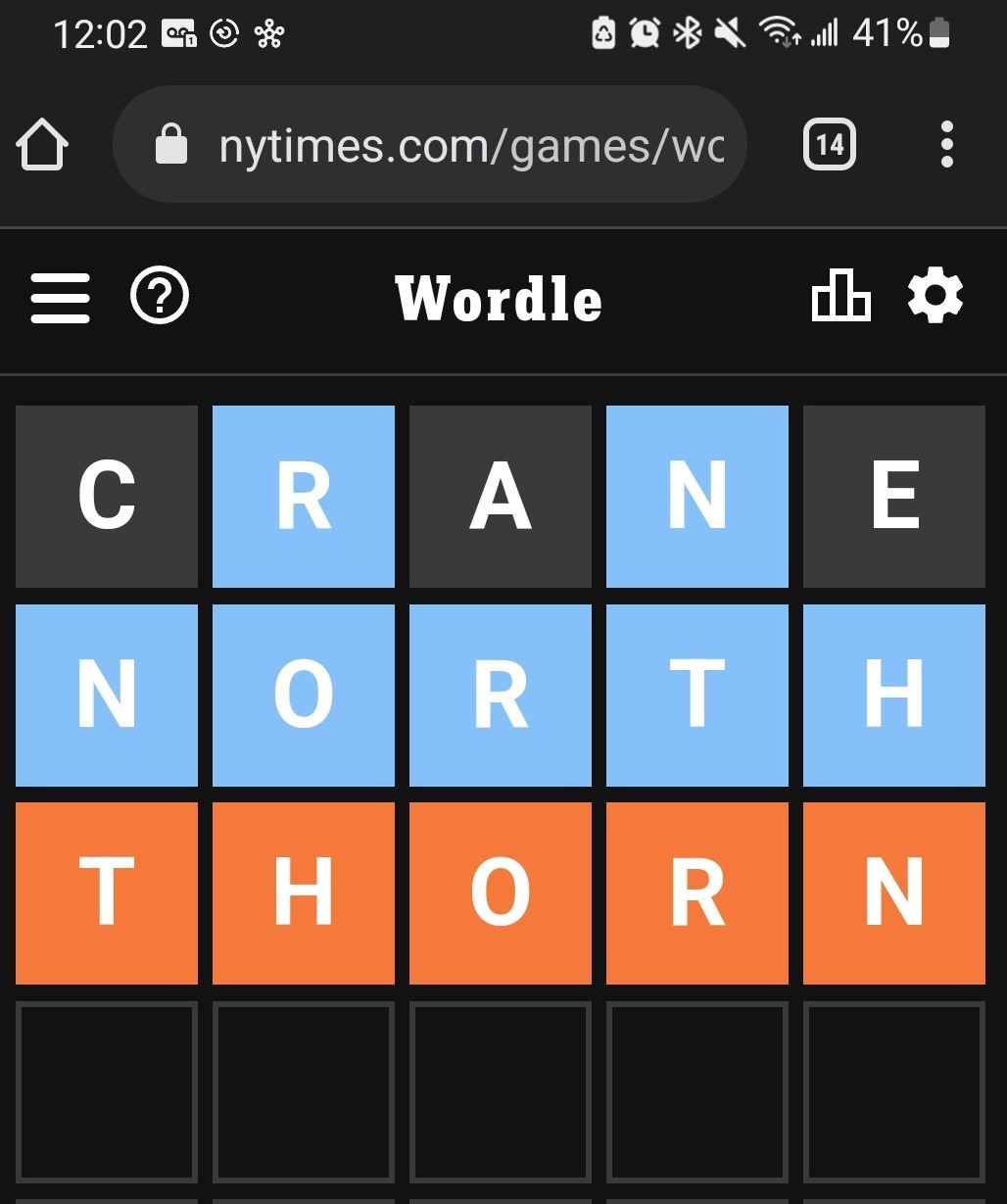
Gradually, inevitably, my enjoyment sank to near ZILCH, to use a five-letter word. As brain food goes, it provided little sustenance. Having a strong vocabulary helps, but it’s also a lot of guesswork. The last time I “Wordled”? Over a month ago, maybe two? Someone might have to pay me to play it again.
By contrast, I know precisely when I learned about the Immaculate Grid.
It was 25 days ago, when my friend Dan sent me a link to www.immaculategrid.com with a simple challenge: “Can you fill the grid?”
He knew I could and that this would be irresistible cat nip. For those who don’t already know, I am a certified sports trivia junkie. (Where’s my certificate, you ask? In 2015, I managed to monetize a lifetime of cramming athletic statistics and stories into my cranium by being a contestant on the short-lived Jeopardy! game show spinoff, Sports Jeopardy!)
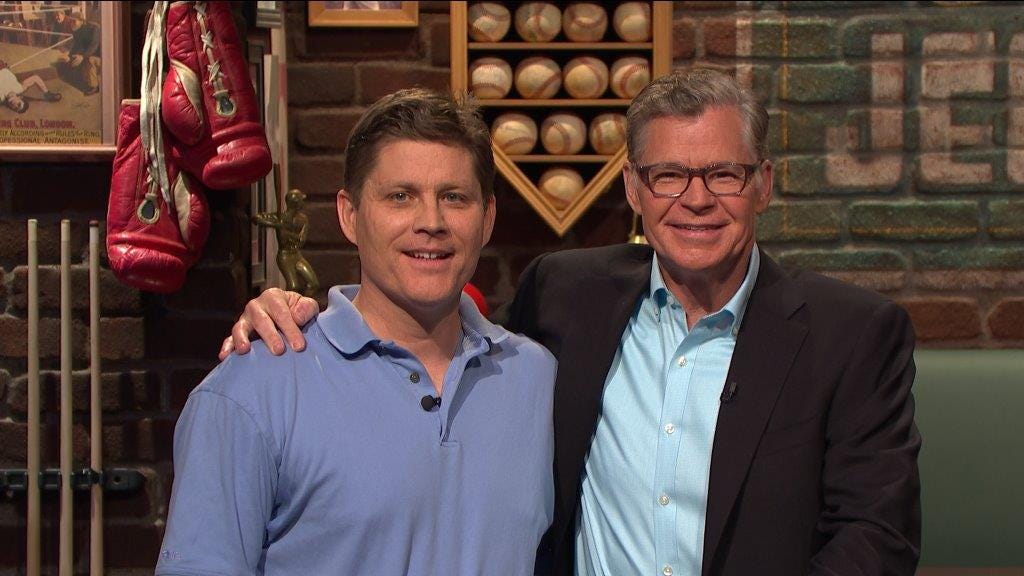
So, yeah, my pal Dan knew Immaculate Grid was right up my alley.
On that fateful day, the only grid was for Major League Baseball. There were three columns down and three columns across—mostly team logos with one feat (I don’t recall if it was a 20-game winner or a .300 batter or whatever) sprinkled in. For each of the nine squares of the grid, the challenge is to name players from across MLB history who are in each of those intersections.
Get all nine and your grid is “immaculate.” Like this one, from five days ago:
Or this one, from August 13th:
The more obscure the player you select, the lower the “rarity” score. The idea is to conjure lesser-known guys so that your cumulative score is as low as possible. The lower the score, the better…like golf.
To be clear, “obscure” sometimes is in reference to an extremely well-known player who suited up briefly for a team—so briefly that it has escaped most fans’ attention or memory.
That’s why, above, I chose Frank Robinson as someone who played for both the California (now Los Angeles) Angels and the Los Angeles Dodgers. Most fans think of him as a Cincinnati Red or a Baltimore Oriole, teams he played on for much longer spans and for which he won Most Valuable Player awards.
Few realize that Robinson competed for both of those squads in the Golden State, hence his 0.5% “rarity score” there.
And who knew Yogi Berra (see below) played for the New York Mets? (After 18 seasons with the New York Yankees, Berra tried a comeback spanning only four games with the Mets in ‘65.) I knew it—only a week earlier, I had dug up clips to learn more about this closing chapter in his career.
So rather than naming a more obvious Met in that slot, I went with Yogi, which yielded a “rarity score” of 2%.
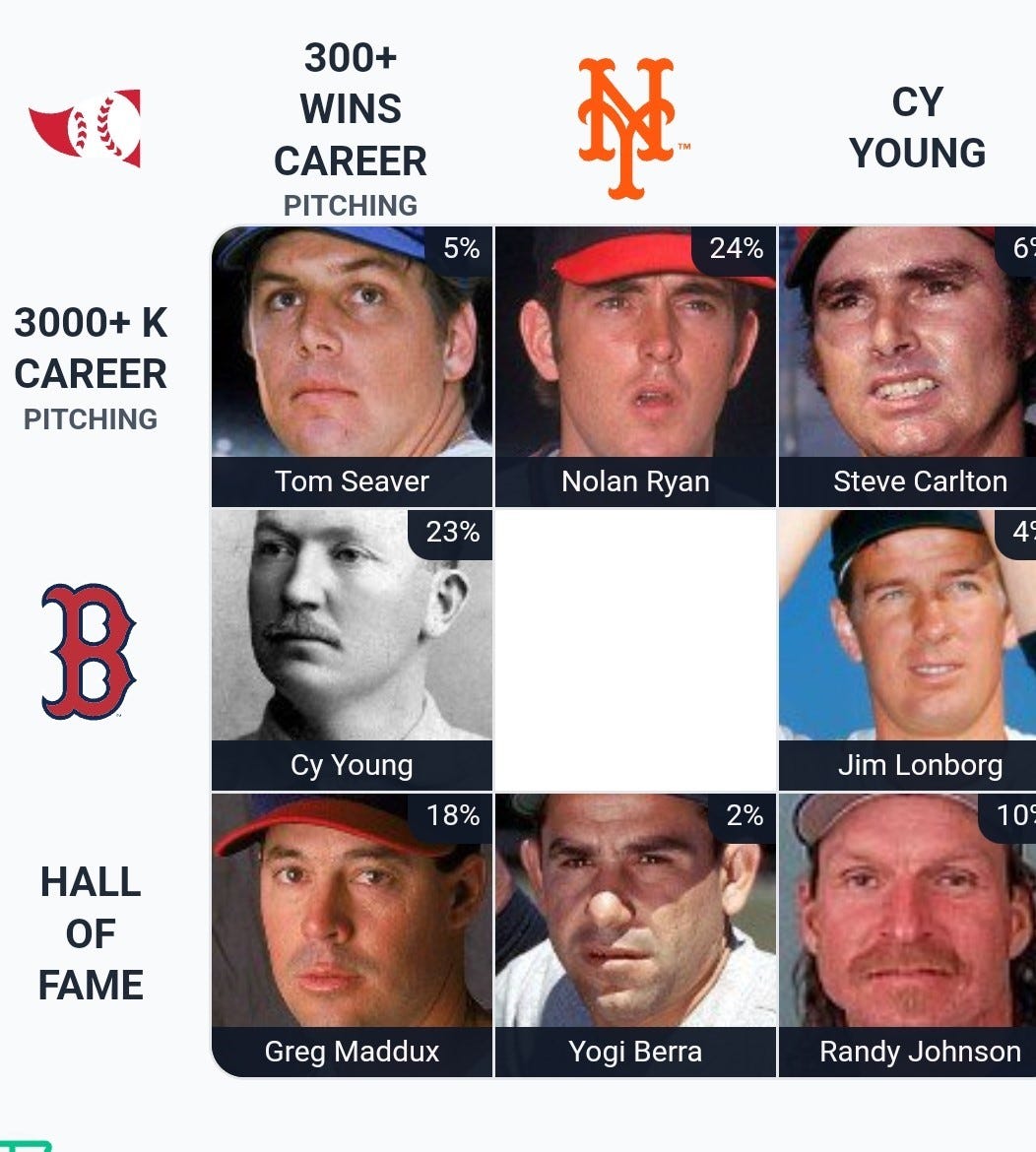
Did I ever come anywhere close to this kind of fun playing Wordle? In a five-letter phrase: NO WAY!
I also have recurring characters that I like to cite, especially those who are somewhat rare. At least three times, I have been able to use Fritz Peterson, a pitcher from the mid-1960s to the mid-1970s whom I profiled in 1994 when he was a blackjack dealer at the Grand Victoria Casino in Elgin, Illinois.2
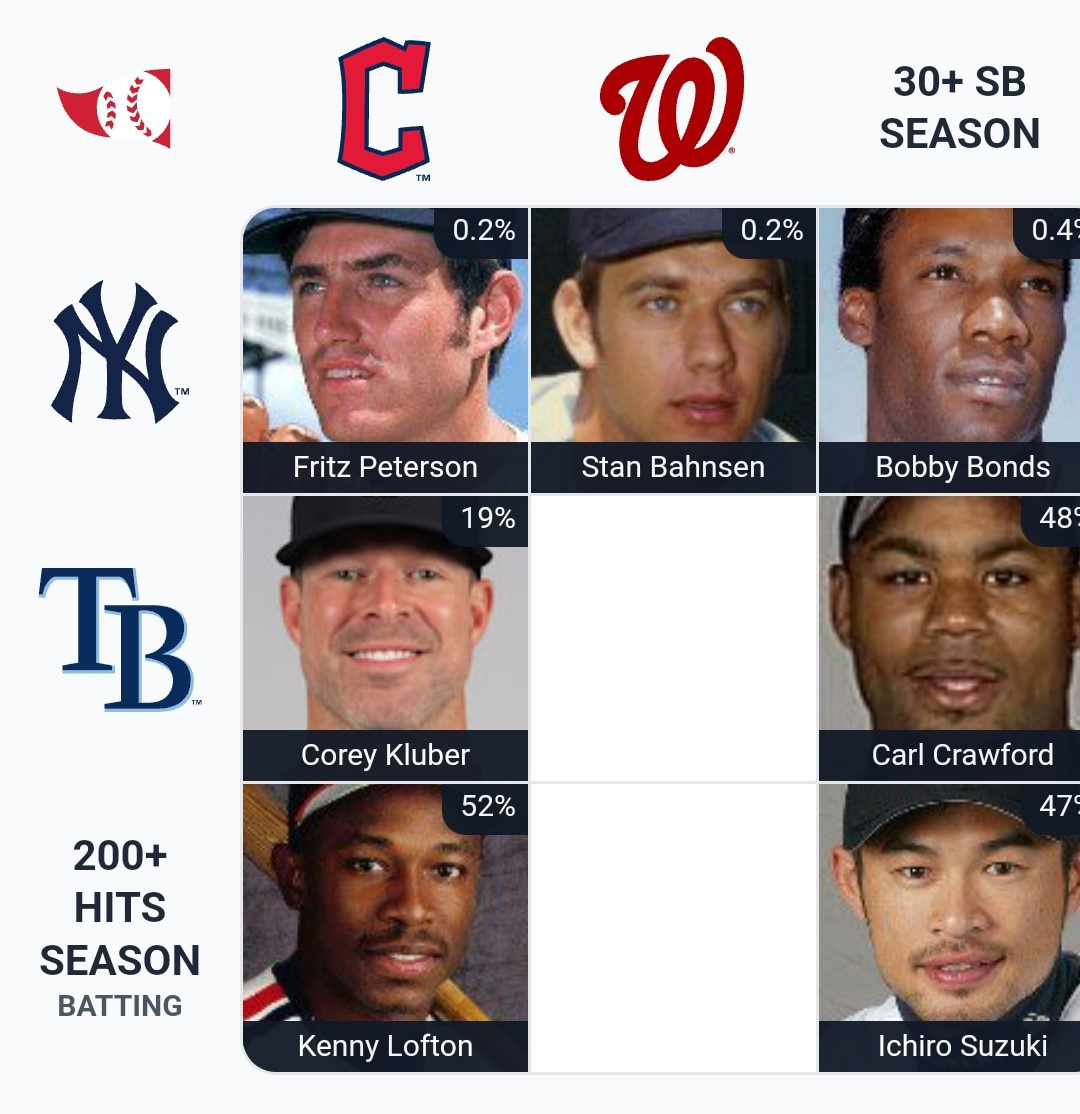
Every day, I look forward to playing Immaculate Grid—the baseball version, at least.
Most days, I work on at least a few of the other grids added since Sports Reference acquired it, especially the National Basketball Association and National Football League grids, where I usually can fill most of the nine boxes. Occasionally, I’ll try the National Hockey League—one time I had the pleasure of selecting journeyman player (but two-time Stanley Cup-winning head coach) Mike Sullivan, with whom I grew up in Marshfield, Mass.
Other grids include the Women’s National Basketball Association and professional soccer (Immaculate Footy). I haven’t ventured into those grids, since I’d be guessing only slightly more than Wordle.
How much more will these Immaculate Grids expand? How many other professional sports? What about college sports? U.S. Presidents? Actors and directors of television shows and movies? (I am sure tech wizards are working on all of these variations and more.)
Regardless of what the future holds, I am grateful for 2023’s massive BOOST (look, five letters!) on Wordle. Far from the empty calorie experience that Wordle had become, the Immaculate Grid brings daily nostalgic nourishment.3
I hardly ever outpaced Bridgett at Wordle. Most humbling…and annoying.
When I sat down with Fritz at the casino, he didn’t realize how much I knew about his life. My first question was about the 1973 story of him and his then-Yankee teammate Mike Kekich “swapping each other’s wives and children,” as the media portrayed their decision to divorce their first wives and marry the other’s spouse. Fritz agreed to continue the interview only on the condition that I not bring up that part of his journey in my feature.
Because that was not the focus of the story anyhow, I agreed.
After the story was published, Fritz came by the newspaper office to drop off a thank-you note. He was undoubtedly relieved that I had kept my word not to delve into the spousal switcheroo. By that point, Fritz and Susanne, the former Mrs. Kekich, had been happily married for over 20 years; I’ve been glad to see nothing in any recent stories, including this one in the New York Post three months ago, suggesting that their happily-ever-after status has changed.
If this is your first time learning about the Immaculate Grid (and you have even a moderate level of professional sports fandom in your bones), then I am honored to play a role in your Grid journey.
Recommended reading: this July 11th Sports Illustrated story by Stephanie Apstein, Immaculate Grid Is The Game Sweeping Through MLB Clubhouses.
An excerpt:
“The game’s creator, 29-year-old software developer Brian Minter, built it over two days in April to practice some new coding processes; it has grown from a side project he shared with a handful of friends to a juggernaut that can draw 200,000 players per day. (The puzzle changes daily at midnight, so everyone is trying to complete the same grid.) On Tuesday, he will announce that he has sold it to Sports Reference for terms he declined to share; Sports Reference founder and president Sean Forman says the company will largely keep the game the same but will look to expand into NFL, NBA and NHL versions. It might also consider allowing subscribers to play multiple games a day.”


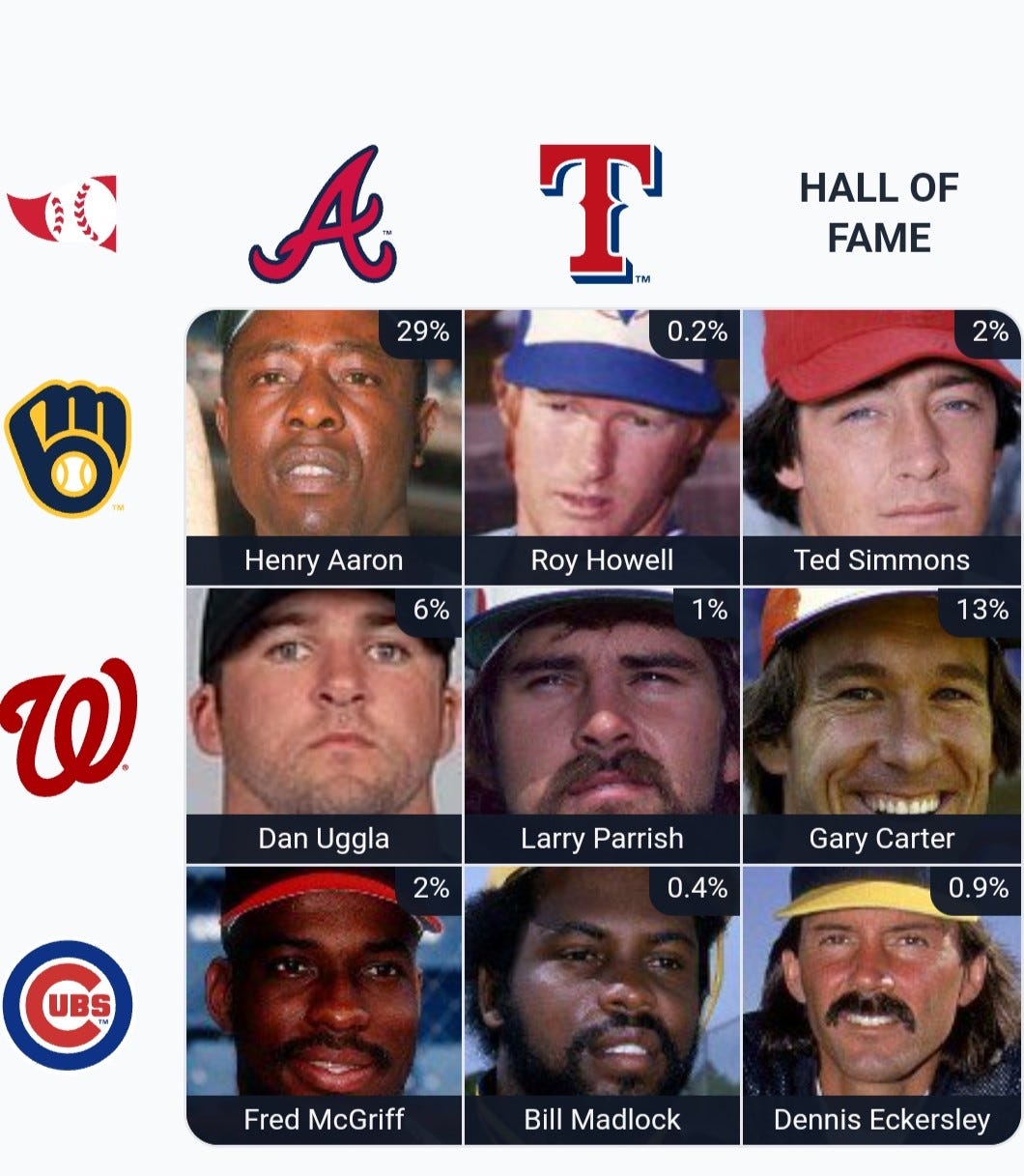
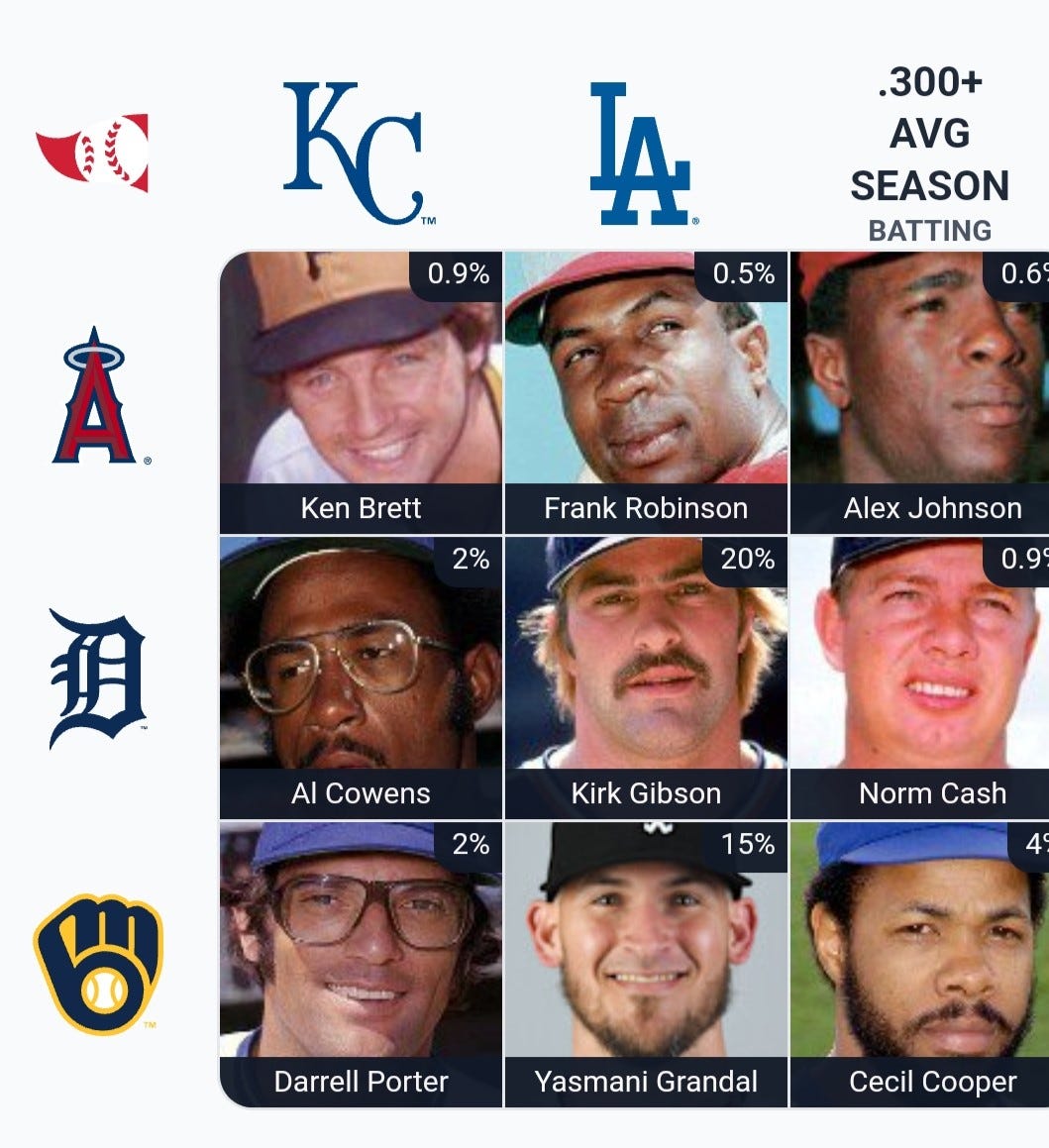
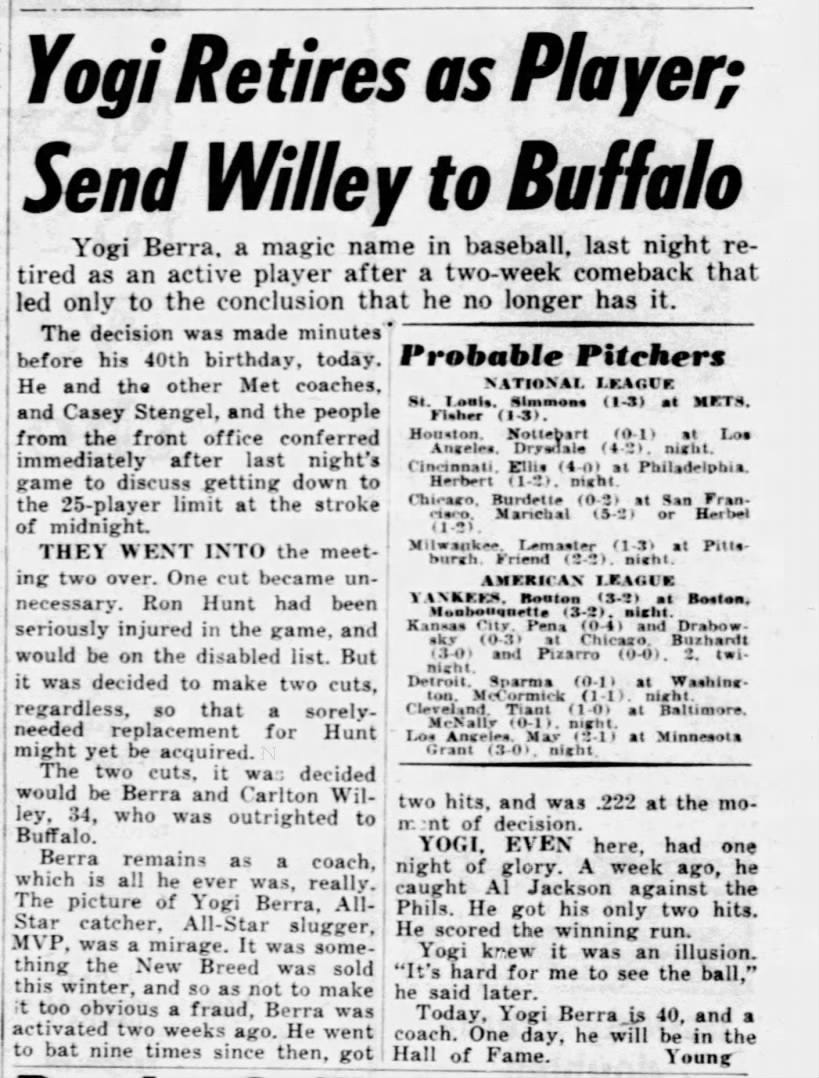
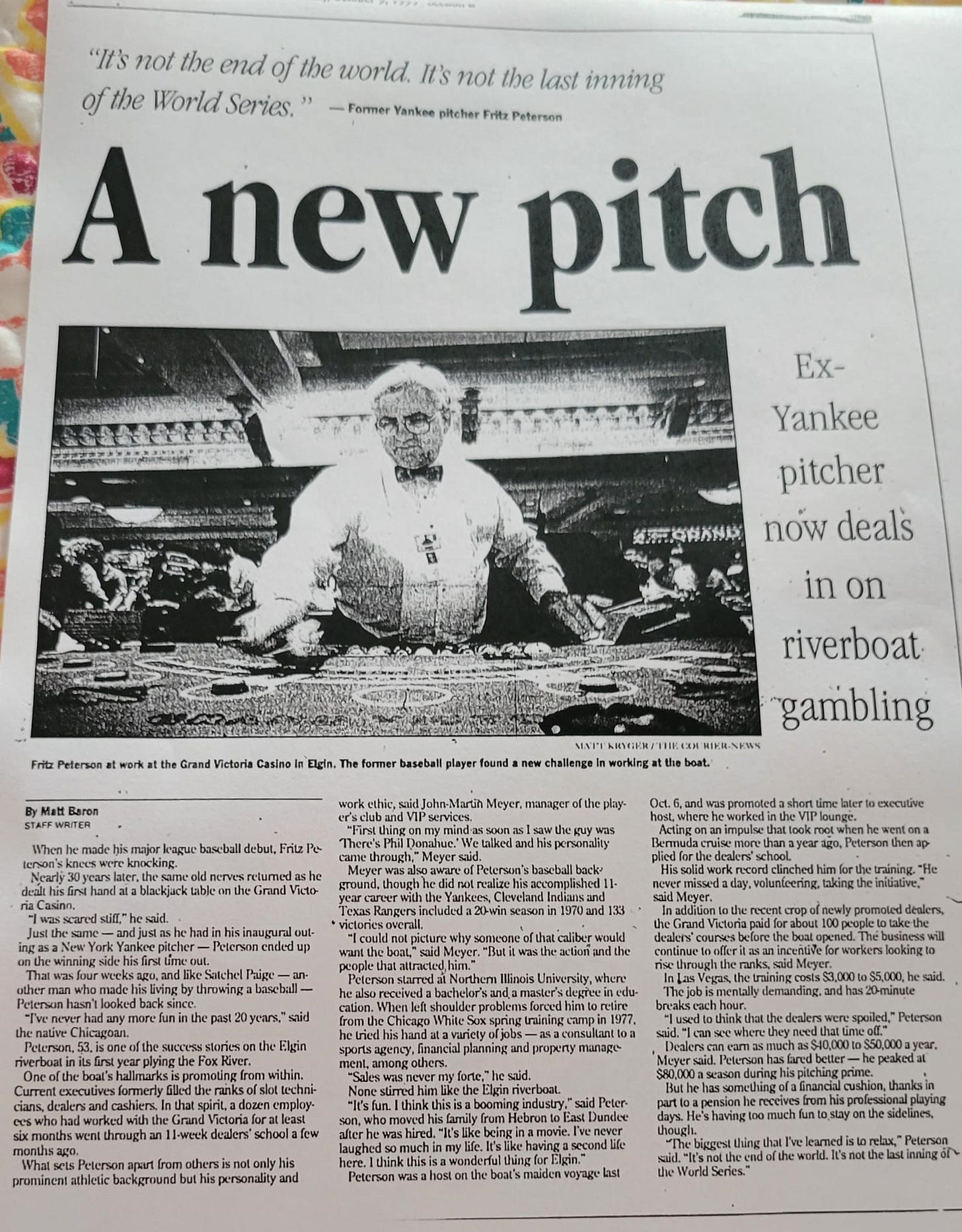
I knew that Yogi Berra played for the Mets, but I had never focused on the timeline -- that that came after he managed the Yankees to the '64 pennant, and that he hadn't played in '64. It's interesting that he played all of his games in '63 and '65 at catcher, after largely manning other positions while Elston Howard caught in previous years. There are a lot of old catchers. It seems that catching breaks down your ability to play baseball generally, but not to catch more than it breaks down anything else. Joe Mauer stopped catching because of concussions, if I remember right, and then there was Johnny Bench, who largely gave up catching for third base, but I don't think they were typical.
I have never played Immaculate Grid and had only dim awareness of it. I feel like I am not very good when the baseball games that I watch feature trivia. I feel like I was at it better years ago, but maybe the questions have just gotten harder. One's only reference point, really, is the announcers.
I wonder if there is a learning curve with Immaculate Grid -- not just in terms of learning certain players one can often play, along the lines of helpful obscure words in Scrabble, but in terms of actually building up these neural connections or something. What I detect from myself more than anything else in trivia is laziness. I'm satisfied with my first answer and am loath to wrack my brain. It's unpleasant to try to do that and fail -- to confront the fact that the names don't come as easily as they once did. Trivia bolsters or damages self-esteem, and it's hard to see a greater significance to it. It is dominated by ego. Games, by contrast, can be great relaxation and relationship builders. Immaculate Grid seems like it has some game bonafides because you can focus on rarity and not just on the fact that you do or don't know something.
As somebody who is not too up on sports, I would completely bomb at Immaculate Grid. I'm still a pretty committed Wordle player, and... sigh... I bombed today (98% of the people got it, but not me...). But after reading your thoughts on Wordle, I think I have a 5 letter word to try tomorrow, you Wordle HATER. So, thanks :)